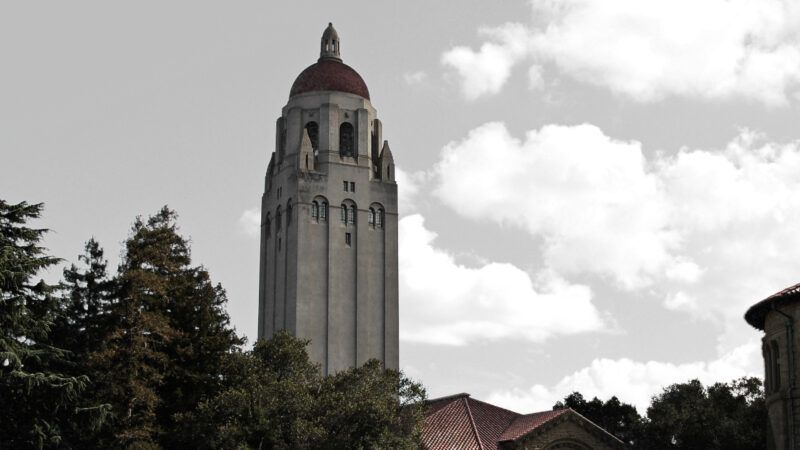College Administrators Hate Fun
Unfortunately, it doesn't seem like the recent trend of rising administrative bloat is going to reverse anytime soon.

Around the country, more and more colleges have seemingly launched a war on fun. At Yale, a law student was pressured by administrators to apologize after inviting students to a party at a "trap house." At the University of Massachusetts Amherst, three students were suspended in 2021 for attending an off-campus party maskless. And at Stanford, the subject of a recent article from The Free Press, student groups must submit an arduous application to even host a party at all.
This anti-social trend is troubling, especially when considering the already sky-high rates of mental illness among college students. But there's a clear reason why so many schools are attempting to lock down their students' social lives. In recent years, the number of college administrators—especially at elite colleges—has skyrocketed. With more administrators, a bureaucratization of student life inevitably follows.
While it's difficult to know just how many new administrators have been added at American colleges over the past few decades, one analysis from the American Council of Trustees and Alumni found that, between 2010 and 2018, spending on administration has increased 19 percent at four-year colleges, outpacing the 17 percent increase in instructional spending. One 2014 analysis by the New England Center for Investigative Reporting found that from 1987 to 2012, more than half a million administrators were added to American college campuses—a doubling compared to academic faculty.
"When I started teaching in the 1960s, there were typically around two faculty for every non-faculty support person," wrote Richard Vedder, professor emeritus of economics at Ohio University, in a 2020 Forbes article. "Today, there are more administrators than faculty at most schools."
The trend of administrative bloat seems to have hit America's most elite universities the hardest. According to a 2018 report from The Chronicle of Higher Education, Yale, Princeton, the University of Chicago, and the Massachusetts Institute of Technology all ranked in the top 10 private colleges by the number of administrators per 1000 students. All but one Ivy League school ranked in the top 50.
It's easy to see how an increase in administrators has caused many schools to flatten student social life. Worries about hazing, binge drinking, and even "microaggressions" justify ballooning administrative departments dedicated to hosting mandatory trainings and creating strict regulations. At some schools, a powerful administration has directly attacked unregulated student life.
"In less than a decade, Stanford's administration eviscerated a hundred years of undergraduate culture and social groups….They went after long-established hubs of student life, like fraternities and cultural theme houses," wrote Ginevra Davis in a 2022 essay for Palladium. "In place of it all, Stanford erected a homogenous housing system that sorts new students into perfectly equitable groups named with letters and numbers."
In fact, at Stanford, the situation became so dire that students began to push back, going so far as to interrupt a football game in protest of what they deemed the school's "war on fun" last year.
Unfortunately, it doesn't seem like the recent trend of rising administrative bloat is going to reverse anytime soon. The incredible restrictions placed on college students during the COVID-19 pandemic indicate that schools are more eager than ever to exert strict power over students' every move.


Show Comments (66)